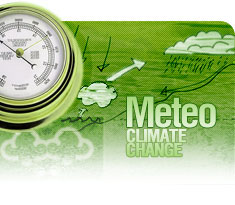https://www.theguardian.com/commentisfree/2021/sep/11/australia-deal-uk-climate-trade-temperature
Leaked documents that reveal the removal of references to temperature targets set a worrying precedent
When the prime minister, Boris Johnson, launched trade negotiations with Australia in June last year, he lauded the opportunities of trading with a like-minded country, a land that could ply the UK with reasonably priced chocolate biscuits and cheap wine.
Except, of course, when it came down to it, there would always be more to this deal than swapping Penguins for Tim Tams. For the environment, current Australian rules do not match up to ours. On animal welfare, pesticide standards and climate change, the approach of the current Australian government isn't the same at all.
Though most of the detail remains hidden, we knew this deal would increase imports of beef from deforested land and food that is produced to lower animal welfare standards. Considering Australia's recent record on carbon emissions, we knew that measures addressing climate and nature would not be the highest priority for the Australian government.
In a letter to UK environmental groups in August, Johnson sought to downplay some of these concerns. He declared that the UK-Australia deal "reaffirms commitments to multilateral environmental agreements, including the Paris agreement". He added that "more trade will not come at the expense of the environment".
Thanks to leaked documents and non-denials, we now know that the environment is at least a bit expendable: the government has apparently removed references to temperature goals from the deal. The Australian prime minister, Scott Morrison, all but confirmed yesterday that Australia had asked for key Paris agreement climate commitments to be watered down in the deal. And rather damningly for the UK, just weeks before it hosts the UN climate conference Cop26 in Glasgow, it appears to have promptly obliged.
UK government spokespeople have sought to defend themselves by saying that the final text will "contain a commitment to address all the Paris climate goals", with temperature goals being "implicit" among them. We are left sensing the text is now vaguer and less ambitious than the UK-EU deal. Removing references to specific reductions in temperature lowers expectations. With specificity comes more measurability, and with it more accountability.
Should we be surprised at the decision to give up so easily? While some may argue that this compromise is more evidence of the UK's more "offensive" trade policy, it does rather look like the UK has backed itself into a corner.
For a long time now UK ministers have pushed a reductive binary choice: either we sign new trade deals and deliver on Brexit, or we fail to honour the referendum result. As one "government source" told the Telegraph in May: "If we can't get Australia over the line, then we're partly accepting our centre of gravity still revolves around Europe." There is room only for a deal, even if it's a bad one. And as a result, terrible precedents are being set - for UK trade and for efforts to tackle the climate and nature crisis.
It's tough to dispute the conclusion that the government looks willing to trample over long-term commitments and interests for short-term political gain. After the outline of the UK-Australia deal was published in June, trade experts struggled to see where the UK would benefit. It was "as good as what you could possibly get from Australia's perspective", while the Australian government celebrated a "great win" for its own agriculture.
In return, the UK government produced a forecast identifying a potential GDP boost of 0.02% over 15 years. Farmers reeled at the prospect of lower-quality food imports undercutting their market and undermining their standards. With such concessions for Australia, you have to wonder what other countries with similarly poor environmental records are thinking. What will we do if Brazil demands similar climate-related exemptions in a trade agreement, or the US on food standards?
And then you have more immediate repercussions. The government has spent years touting "world-leading" domestic measures, particularly around nature, and it has genuine aspirations for global green leadership. Right now our leaders must be trying to persuade others to do more, not less, to tackle the climate crisis. That's why this leak really matters.
Like the prime minister, environmental groups want the UK to be a successful trading nation and host a transformative Cop26. But if we are to do so, we need Johnson to take an approach that matches up to the overwhelming - and increasing - public support for tackling the environmental crisis.
The prime minister must improve UK trade policy. It is currently opaque, with the discussion informed by press releases and leaks. Stakeholders are bound to non-disclosure agreements. Impact assessments will only be published once negotiations have already concluded. The body set up to analyse trade deals, the trade and agriculture commission (TAC), has been utterly sidelined, with the former chair exasperated at the government's actions.
As recommended by the TAC and the national food strategy, we need the prime minister to support the design of a set of core environmental standards for trade deals. These would make sure imported food meets the same minimum standards on the climate crisis, the environment and animal welfare as food that is produced in the UK. Alongside them, a clear trade strategy should show how issues such as climate and public health fit into the construct of "global Britain".
And lastly, between now and the aftermath of Cop26, our prime minister needs to not just tell the world that every country must uphold promises and agreements on climate change - but show it too. If that means reviewing and improving the Australia deal, then that is a precedent worth setting.



 Română
Română English
English


